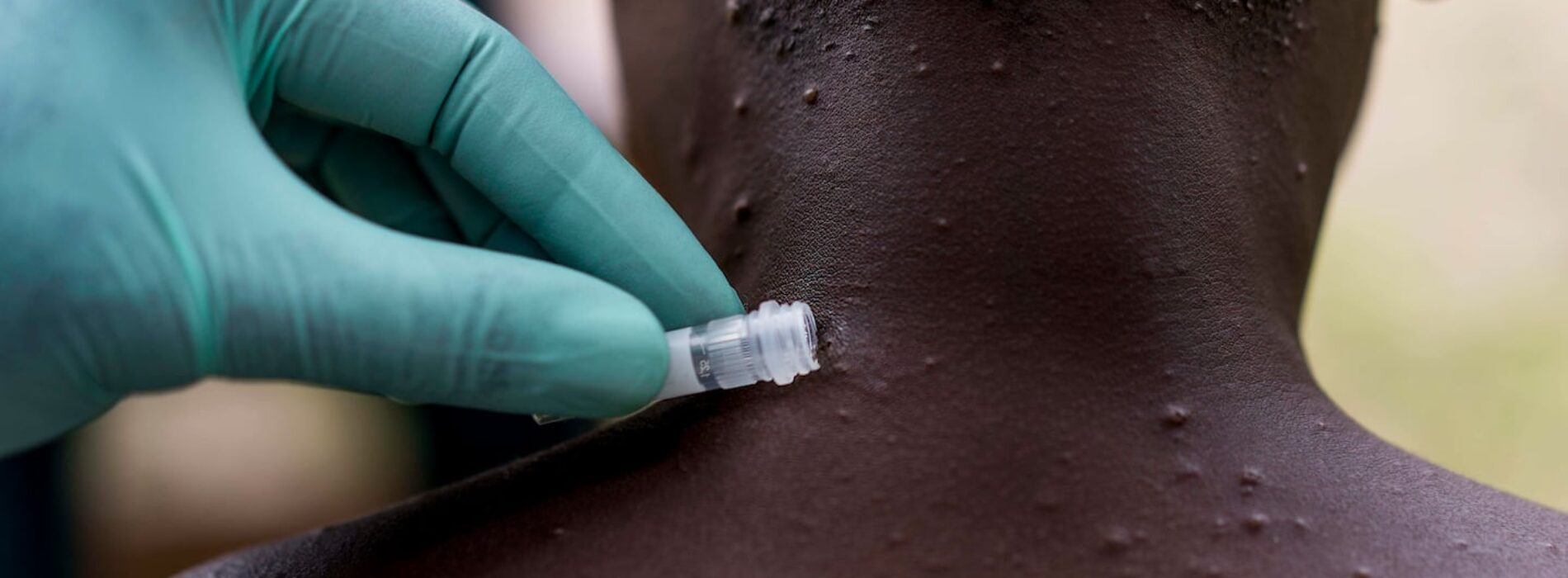WHO, Africa CDC declares Mpox Public Health Emergency of International Concern
The World Health Organisation (WHO) and the Africa Centres for Disease Control and Prevention (Africa CDC) have officially declared the ongoing Mpox outbreak a Public Health Emergency of Continental Security (PHECS).
Addressing a Press Conference in Geneva yesterday, The WHO Director-General Dr. Tedros Adhanom Ghebreyesus declared the agency’s commitment “in the days and weeks ahead to coordinate the global response, working closely with each of the affected countries, and leveraging our on-the-ground presence, to prevent transmission, treat those infected, and save lives.”
“This is something that should concern us all,” the Dr. Tedros declared.
The Africa CDC had also earlier on Wednesday made its declaration, the first such declaration, since its inception in 2017.
The declaration, under Article 3, Paragraph F of the Africa CDC Statutes, empowers the organization to lead and coordinate responses to significant health emergencies. The statute mandates Africa CDC to “coordinate and support Member States in health emergency responses, particularly those declared PHECS or Public Health Emergency of International Concern (PHEIC), as well as health promotion and disease prevention through health systems strengthening, addressing communicable and non-communicable diseases, environmental health, and Neglected Tropical Diseases.”
The declaration will enable the mobilization of resources across affected countries, unlocking essential funding, strengthening Risk Communication and Community Engagement (RCCE), boosting surveillance and laboratory testing efforts, and enhancing human resource capacities to respond effectively to Mpox through a One Health approach.
Africa CDC Director General Dr. Jean Kaseya emphasized the urgency of swift and decisive action: “Today, we declare this PHECS to mobilize our institutions, our collective will, and our resources to act—swiftly and decisively. This empowers us to forge new partnerships, strengthen our health systems, educate our communities, and deliver life-saving interventions where they are needed most. There is no need for travel restrictions at this time.”
At least 13 African countries, including previously unaffected nations like Burundi, Kenya, Rwanda, and Uganda, have reported Mpox outbreaks. So far in 2024, these countries have confirmed 2,863 cases and 517 deaths, primarily in the Democratic Republic of the Congo (DRC). Suspected cases across the continent have surged past 17,000, a significant increase from 7,146 cases in 2022 and 14,957 cases in 2023. This is just the tip of the iceberg when we consider the many weaknesses in surveillance, laboratory testing and contact tracing.
Dr. Kaseya underscored the gravity of the situation stating “This is not just another challenge; it’s a crisis that demands our collective action. Article 3, Paragraph F of the Africa CDC Statutes mandates us to lead and coordinate the response when there is a declaration of a public health emergency of international concern.”
From May 2022 to July 2023, Mpox was declared a Public Health Emergency of International Concern (PHEIC) by the WHO. However, Africa did not receive the support it urgently needed during this period. As global cases began to decline, the escalating numbers in Africa were largely ignored. Dr. Kaseya emphasized the need for a change in approach: “We urge our international partners to seize this moment to act differently and collaborate closely with Africa CDC to provide the necessary support to our Member States.”
He continued, appealing to global partners: “We call on you to stand with us in this critical hour. Africa has long been on the frontlines in the fight against infectious diseases, often with limited resources. The battle against Mpox demands a global response. We need your support, expertise, and solidarity. The world cannot afford to turn a blind eye to this crisis.”
He explained that the emergency declaration follows wide consultations, including a unanimous decision by the Africa CDC Emergency Consultative Group (ECG), chaired by Professor Salim Abdool Karim, head of CAPRISA, an AIDS research program based in Durban, South Africa.
Prof. Karim highlighted that limited surveillance and evidence suggest the situation could be more severe than currently understood. “The number of cases has significantly increased compared to 2022 when WHO declared Mpox a public health emergency. It’s clear that we’re facing a different scenario with far more cases, resulting in a higher burden of illness,” he said. He also raised concerns about the rising fatalities, particularly the potential link between HIV and Mpox. “Our concern is that we may be seeing more fatalities in Africa due to the association with HIV,” he noted.
Cross-border transmission to previously unaffected countries was also a concern, prompting the ECG to urge the strategic distribution of the limited vaccines available. The lack of diagnostic capabilities was identified as a critical issue requiring urgent attention, and the ECG encouraged the development of response plans, promising to provide input and support.
To address the Mpox outbreak in Africa, Africa CDC has set up a 25-member Incident Management Team based at the epicenter of the Mpox epidemic with mandate to support affected and at-risk countries. Africa CDC has also signed a partnership agreement with the European Commission’s Health Emergency Preparedness and Response Authority (HERA) and Bavarian Nordic to provide over 215,000 doses of the MVA-BN® vaccine—the only FDA and EMA-approved Mpox vaccine. Africa CDC will oversee the equitable distribution of these vaccines, prioritizing local needs across the affected Member States.
A public health emergency of international concern (PHEIC) is the highest alarm the WHO can sound.
A PHEIC declaration triggers emergency responses in countries worldwide under the legally binding International Health Regulations.
It is the second PHEIC in succession on mpox by WHO — albeit one focused on a different, and more deadly, strain of the virus.
In May 2022, mpox infections surged worldwide, mostly affecting gay and bisexual men, due to the clade 2b subclade.
The WHO declared a public health emergency which lasted from July 2022 to May 2023. The outbreak, which has now largely subsided, caused some 140 deaths out of around 90,000 cases.
The clade 1b subclade, which has been surging in the DRC since September 2023, causes more severe disease than clade 2b, with a higher fatality rate.
Mpox is an infectious disease caused by a virus transmitted to humans by infected animals but can also be passed from human to human through close physical contact.
The disease causes fever, muscular aches and large boil-like skin lesions.
Two vaccines for mpox are recommended by WHO immunisation experts.
A PHEIC has only been declared seven times previously since 2009: over H1N1 swine flu, poliovirus, Ebola, Zika virus, Ebola again, Covid-19 and mpox.
Marion Koopmans, director of the Pandemic and Disaster Management Centre at Erasmus University Rotterdam, said a PHEIC “raises the level of alert, globally, and may allow WHO to access funds for emergency response”.
However, “the same priorities remain: investing in diagnostic capacity, public health response, treatment support and vaccination”, she said, warning that this would be a challenge as the DRC and its neighbours are lacking resources.
And at a global level, “despite having the resources and basic public health capacity in place, the international outbreak that started in 2022 was not contained”.






0 Comments
No Comments Yet!
You can be first to comment this post!